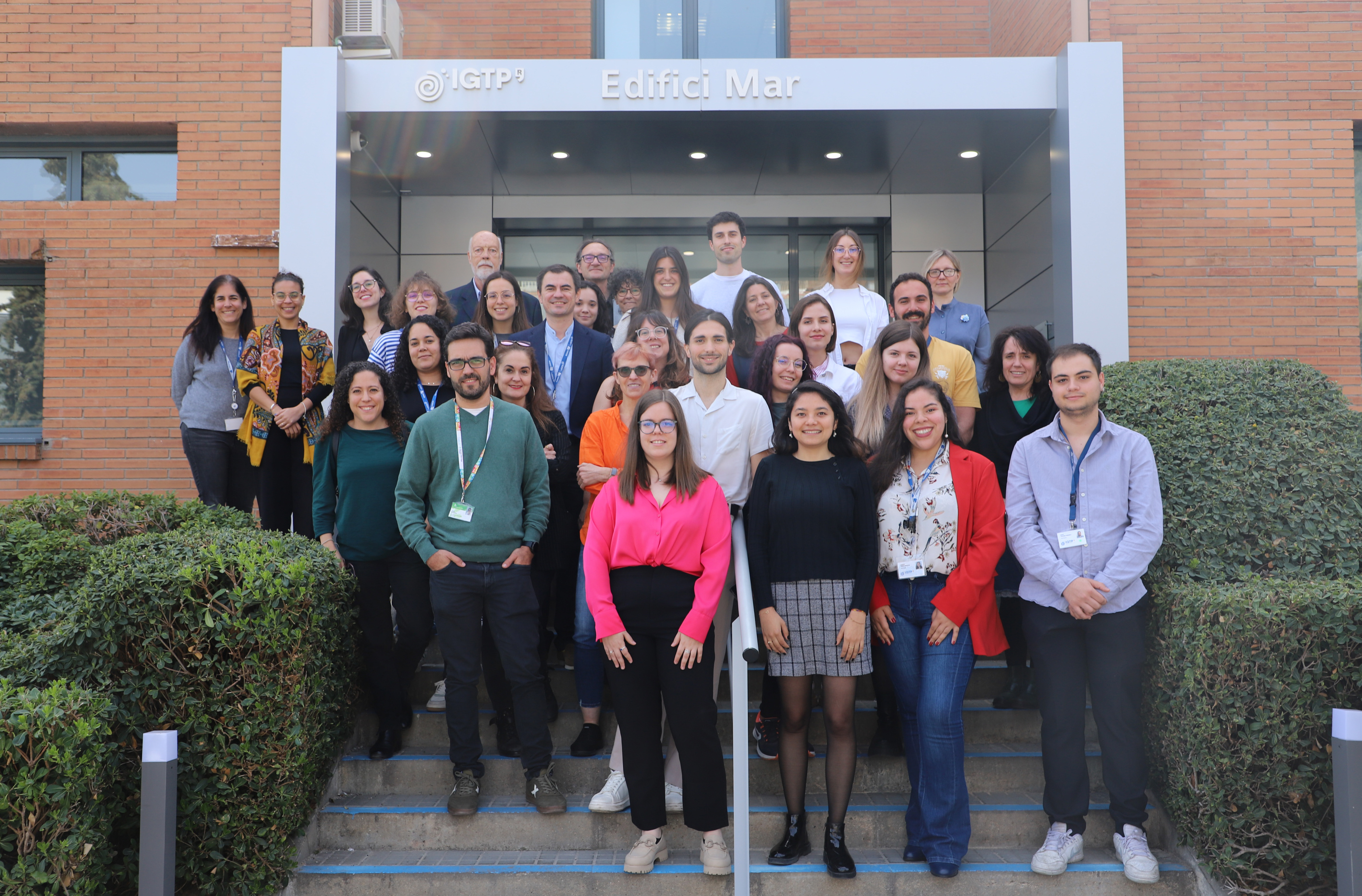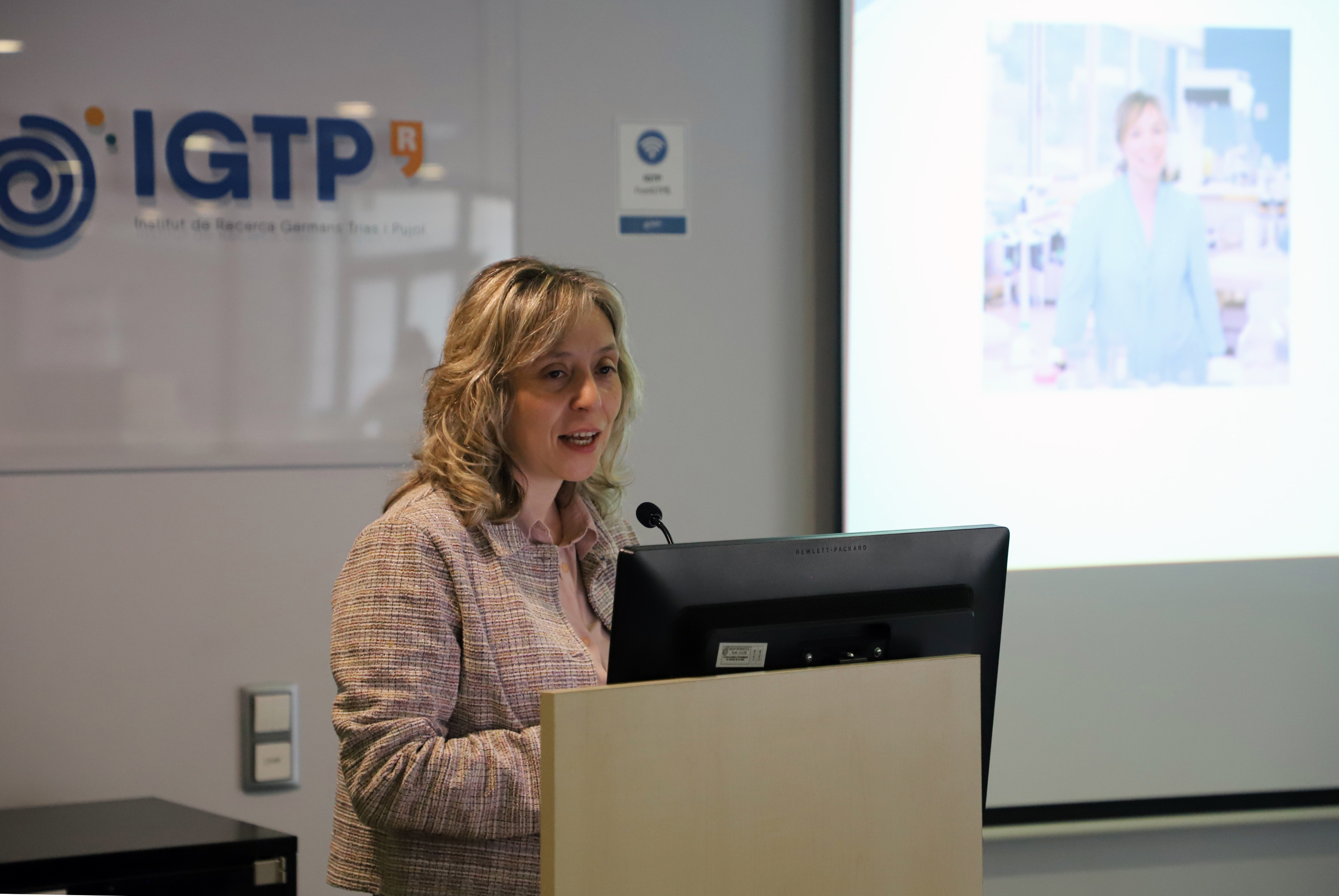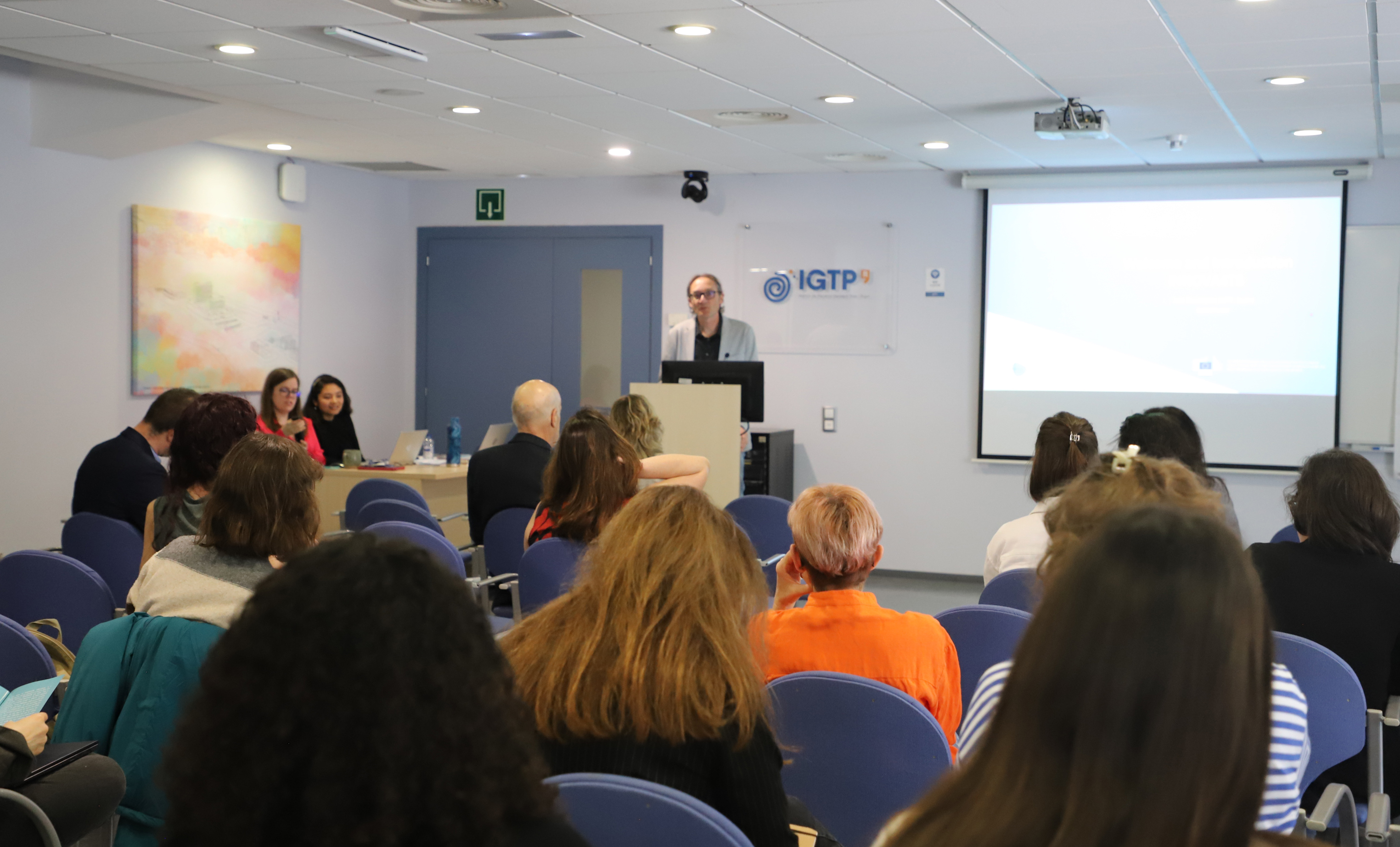The international consortium INNOVA4TB wraps up five years of cutting-edge tuberculosis research
This marks the end of the project, paving the way for ADVANCE-TB

Today the final meeting of INNOVA4TB, a consortium led by Germans Trias i Pujol Research Institute (IGTP) with researchers from around the world, has taken place. Participants presented the results of the different work packages and evaluated the work done since 2019. IGTP will continue to be involved in other networks such as ADVANCE-TB and SMA-TB.
INNOVA4TB is a project promoted and coordinated by IGTP's Innovation in Respiratory Infections and Tuberculosis Diagnosis Research Group, led by José Domínguez and Cristina Prat. It is an international and intersectoral consortium combining 16 institutions and companies with expertise in tuberculosis diagnosis and clinical management. The project was funded by a RISE (Research and Innovation Staff Exchange) grant, within the 2018 call for Marie Skłodowska-Curie Actions (MSCA), under the European Commission's Horizon 2020 program.
The final meeting
The final meeting of INNOVA4TB has taken place at IGTP and brought together individuals from other participating entities. José Domínguez, the project coordinator, and Julia García Prado, scientific director of IGTP, welcomed attendees with a very positive assessment of the project: "We have to move forward
together to provide solutions to the diagnostic and treatment problems of tuberculosis, a disease still so prevalent today. INNOVA4TB has been a great opportunity to share experiences and we think initiatives like this are crucial".
Next, researchers explained the work carried out to achieve the objectives set for each of the work packages. José Domínguez, alongside project managers Ane Cristancho and Sandra Fernández, covered aspects of management, training, implementation, and finance. In terms of scientific contributions, Irene Latorre (IGTP) presented results on host-pathogen interactions, Domínguez on the development of new diagnostic methods, Andrii Dudnyk (Vinnytsia National M.I. Pyrogov Medical University) on tests for detecting TB-M/XDR, and Alicia Lacoma (IGTP, CIBERES) on new therapeutic strategies. Finally, Raquel Villar (GenID) explained the project's communication aspect.
The day continued with a presentation on research and innovation by Zoran Stojanovic (HUGTiP) from the BIOMARKERS4TB team. After a lunch break, Jaime Martínez Urtaza (UAB) delivered the keynote lecture on climate change and global health. Researchers who participated in exchange stays among the institutions, and their representatives, also had the opportunity to share their perspectives and evaluate the work done over the last few years.
Lastly, Domínguez and Lacoma outlined, respectively, the achievements of INNOVA4TB and the next steps.
What has been achieved?
Over the past five years, INNOVA4TB has conducted research in various key areas to make progress in the fight against tuberculosis. Researchers have thoroughly investigated the interaction between bacteria and host, as well as environmental factors that can modulate this interaction, with a focus on tobacco, pollution, and plastics. They have also developed new methods for diagnosing the disease and for determining whether the bacteria are resistant to major anti-tuberculosis antibiotics. A final line of study focused on identifying new compounds with antimycobacterial activity. All this collaborative work has resulted in 25 scientific articles, contributing to the improvement of diagnosis and treatment for tuberculosis patients.
In addition to conducting these studies, INNOVA4TB has facilitated the professional growth of many participants, with stays at consortium institutions involving 54 people, including researchers, technicians, doctors, and support staff.
The composition of the consortium, integrating 16 institutions including research centres, universities, hospitals, and small and medium-sized enterprises, has provided a wide range of perspectives and expertise, essential for tackling such a complex disease from multiple angles.
Now, what?
IGTP's group continues to collaborate with research groups and entities outside Spain. In 2022, the COST program (European Cooperation in Science and Technology) granted an action to the 'ADVANCE-TB - Towards an improvement in diagnostics and treatment strategies for TB control' network, led by Alicia Lacoma.
ADVANCE-TB is a research network which offers collaboration opportunities among physicians, academic researchers from interdisciplinary backgrounds, industry, and non-governmental organizations. It has over 134 members from 42 countries and continues to grow.
The action aims to address the complexity of tuberculosis management through the collaboration of four working groups, each focusing on a specific aspect. Some of its main objectives are to develop infrastructures for clinical trials, harmonise databases, study biomarkers and advanced technologies to improve disease diagnosis, explore new drugs and therapies, and disseminate the results to society.
IGTP also has other groups primarily dedicated to tuberculosis: the Clinical and Experimental Microbiology Group and the Experimental Tuberculosis Unit (UTE). The team led by Cristina Vilaplana, head of the unit, coordinates another consortium, SMA-TB, comprising 9 institutions from 7 different countries. The purpose of their project is to find ways to predict which tuberculosis patients could benefit from adding anti-inflammatory drugs to their treatment.
Research in tuberculosis and other infectious diseases will continue to be a fundamental pillar at the Can Ruti Campus in the coming years. The interdisciplinary approach and international collaboration will expand knowledge and enhance the impact of research to meet the global health challenges of the future.
March 24, World Tuberculosis Day
The meeting was held in the context of World Tuberculosis Day, which coincides with the annual commemoration of the discovery in 1882 of the bacterium that causes the disease, Mycobacterium tuberculosis, also known as the Koch's bacillus, by the German physician and microbiologist Robert Koch. The purpose of the day is to raise public awareness about the health, social, and economic consequences of tuberculosis and to intensify efforts to end the global epidemic.
Tuberculosis is a bacterial infectious disease that can affect many organs but most commonly affects the lungs. It is transmitted from person to person through the air when someone with pulmonary tuberculosis coughs, sneezes, or spits.
Typically, tuberculosis progresses slowly (over months or even years), but it can present in a more acute and severe form in people with low immunity, such as children, the elderly, those with HIV, cancer, or diabetes. If those affected by the disease follow the correct long-term treatment, they can be completely cured and prevent the emergence of drug resistance.
Source: Department of Health
- A project on diagnostics and clinical management of tuberculosis, led by the IGTP, receives Marie Skłodowska Curie Funding
- The IGTP coordinating two out of nine COST Actions coming to Spain and participating in a third
- The EU awards 16 million euros to Can Ruti for two Projects on infectious diseases coordinated by IrsiCaixa and the Germans Trias i Pujol Research Institute


